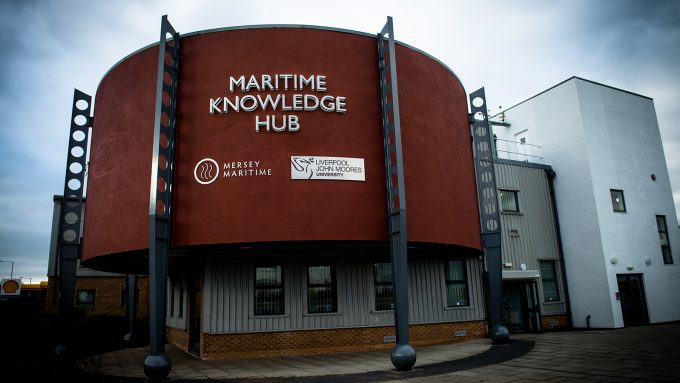Loadstar Podcast | July 2024 | Politics shaping global supply chains as the UK votes
In this episode of The Loadstar Podcast, we explore the complex interplay between politics and ...
TFII: SOLID AS USUALMAERSK: WEAKENINGF: FALLING OFF A CLIFFAAPL: 'BOTTLENECK IN MAINLAND CHINA'AAPL: CHINA TRENDSDHL: GROWTH CAPEXR: ANOTHER SOLID DELIVERYMFT: HERE COMES THE FALLDSV: LOOK AT SCHENKER PERFORMANCEUPS: A WAVE OF DOWNGRADES DSV: BARGAIN BINKNX: EARNINGS OUTODFL: RISING AND FALLING AND THEN RISING
TFII: SOLID AS USUALMAERSK: WEAKENINGF: FALLING OFF A CLIFFAAPL: 'BOTTLENECK IN MAINLAND CHINA'AAPL: CHINA TRENDSDHL: GROWTH CAPEXR: ANOTHER SOLID DELIVERYMFT: HERE COMES THE FALLDSV: LOOK AT SCHENKER PERFORMANCEUPS: A WAVE OF DOWNGRADES DSV: BARGAIN BINKNX: EARNINGS OUTODFL: RISING AND FALLING AND THEN RISING

Mersey Maritime aims to transform Liverpool into the “Silicon Valley of the shipping community” as the city eyes a return to its halcyon days as a premier shipping hub.
Chief executive of the lobby group Chris Shirling-Rooke says Liverpool stands alone in the region, boasting four universities as well as shipbuilder Camel Laird.
He added: “40% of businesses in the region are involved in engineering, and with Camel Laird winning the contract to build the most advanced research ship in the world [the £150m Sir David Attenborough polar research vessel], it underlines the city’s reputation for innovation.”
As part of the push to promote Liverpool and the surrounding region, Mersey Maritime in partnership with Liverpool John Moore’s University (LJMU), opened the Maritime Knowledge Hub last June.
Mr Shirling-Rooke said the hub would focus on Merseyside’s core strengths of manufacturing, research and development, innovation and education and training, with space and support for maritime start-ups, conference facilities and capability for supporting manufacturers in the design, test and build of products or services.
“We wanted to provide a space for the SMEs in the community,” he said. “It is these companies – not big shiny ones – that instinctively know how to innovate.”
Alongside space for businesses, the hub also hosts an LJMU training suite, with a ship’s bridge simulator for domestic and global markets.
“We need to focus on core areas: advanced manufacturing; professional knowledge; and skills,” continued Mr Shirling-Rooke. “And the logistics industry as a whole is facing a skills shortage, so skills will remain a big issue.”
Addressing concerns that technology might supplant human jobs at sea, executive dean of the faculty of engineering and technology at LJMU Ahmed Al-Shamma believes it unlikely.
“At least in the current circumstances, autonomous ships are not realistic,” said Mr Al-Shamma. “What about pirates? What about terrorists? You’ll end up with ship systems being shut down and vessels towed away by hostiles.”
Mr Al-Shamma did, however, note that technologically it was becoming more feasible for some automation between departure and arrival.
“But even then, you’ll still need pilots to bring the ships in,” he said.
Mr Shirling-Rooke acknowledged support from the European Union and its New Markets 2 regional development fund.
Comment on this article